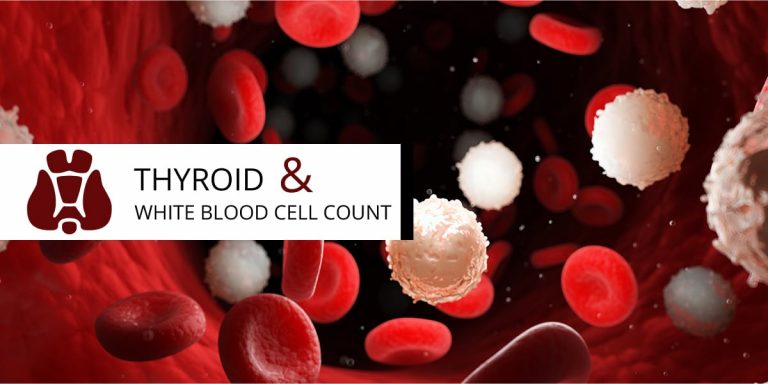In our Toronto Naturopathic clinic, something I see quite frequently is a low white blood cell count when completing a CBC blood test. Over time, having seen thousands of patients, I’ve definitely noticed a pattern. What I’ve seen is that thyroid and autoimmune patients are the most common to present with a low white blood cell count.
White blood cells—also known as neutrophils—are crucial factors in immune health.
Deficiency can be common, but deficiency can be chronic in some patients. There are a variety of causes that have been investigated for low white blood cell count, and various elements such as nutritional and immune causes have been found in this study. (1)

A Study on Neutropenia
In 2015, a study (2) was conducted on 218 patients with neutropenia (chronic low white blood cells). These patients had low neutrophils on at least three consecutive occasions over the course of three months.
Patients were tested for a variety of autoimmune markers, such as ANA, Anti DNA Abs, Rheumatoid factor, and both complement 3 and 4. In addition, vitamin, mineral, viral and infectious markers were assessed. Participants also received a thyroid ultrasound and were tested for thyroid hormone levels. These included TSH, free T3 free T4 along with total t3 and t4 and thyroid antibodies.
In this test, researchers used a TSH >4 as evidence for hypothyroidism so these patients had more significant hypothyroidism. I have seen this to occur in patients with TSH between 2-4 as well, along with those who have positive thyroid antibodies.
They found that 43% of the patients with low blood cells had evidence of thyroid disease. These included Grave’s disease, Hashimoto’s, multinodular goitre, and hypothyroidism.
A significant number of the remaining patients had autoimmune conditions particularly related to connective tissue, such as arthritis and mixed connective tissue disease. Other common causes were folate, B12, and iron deficiencies.
Patients who had thyroid conditions and low white blood cell counts also showed increased frequency of infections. In contrast, those with low white blood cell counts and no thyroid disease actually did quite well when it came to infections.
The authors found that inflammatory cytokine, and circulating immune complex production caused problems with white blood cell function.

Links with Autoimmune Conditions
Another consideration is that an excess of thyroid hormones can also downregulate white blood cells, similarly to a deficiency. This, however, seems to be present in more severe hyperthyroid cases.
The authors suggest that thyroid hormones may have a direct effect on the early stages of white blood cell development. If levels are either too low or too high, there can be a reduction in the number of white blood cells produced.
It’s known that low white blood cells are common in other autoimmune conditions. Therefore, it’s thought that there’s actually an autoimmune component to the neutropeonia itself as well. In this study, they found a correlation of Anti TPO with anti -PMN antibodies.
It has also been found that white blood cells can be inhibited by thyroid-stimulating antibodies found in Grave’s. (3) Additionally, it appears that patients with Hashimoto’s thyroiditis (4) have a high degree of circulating immune complexes.
These are antibodies against the white blood cells (anti-neutrophil antibodies). Unfortunately this test isn’t available in most labs. However, Anti TPO and Anti TG are readily available, and are tests that we commonly run at the clinic.
The authors concluded that thyroid disease frequency in patients with low blood cells is higher than commonly thought.
So based on the studies, what should you look for and what can you do?

How to know when you should consider testing
Get Proper Testing if you get sick a lot, or have low white blood cells.
- All patients with low WBC should be tested for thyroid function, and especially thyroid antibodies: Anti TG and Anti TPO.
- In addition, patients should be tested for folate, zinc and B12 nutritional deficiencies.
- Get science-based naturopathic treatment for autoimmune thyroid disease‘s inflammatory elements. This should include thyroid hormone normalization, along with promoting healthy immune function.
- Areas where inflammation arises should be identified and treated, such as the gut, allergies ,or infections. See a licensed naturopathic doctor for this, it’s our area of focus! Depending on your area, naturopathic doctors may be able to issue and interpret these tests for you as we offer them in our clinic based in Toronto, Ontario.
- Proper antioxidant support should also be provided to reduce oxidative stress and promote normal immune function. Selenium, Zinc, Vitamin C are key antioxidant micronutrients for immune health!
- Patients with suboptimal thyroid health should take care to avoid exposure to viruses and bacteria. They should also practice strict hygiene as they may be susceptible to infection.
- Vitamin D levels are key in wintertime to support immune function, particular in Northern regions.
- Sleep, and a healthy, whole-foods diet can do wonders in helping promote healthy immune function. Don’t omit the basics: lifestyle and diet can make a major difference!
Next Steps
Getting naturopathic treatment for thyroid
- If you are in the Toronto area and wondering "where can I find a naturopath for thyroid near me?", we work extensively with natural thyroid treatments and are currently taking new patients.
- If you are in Ontario outside the GTA, we offer telemedicine appointments
- If you are outside of Ontario, a good place to start would be to check the EndoANP website, to see if you can find an ND with a special focus on thyroid or hormones.
ENDOANP was created for the purpose of educating practitioners in the treatment of hormones, where I serve on the board alongside a team of wonderful NDs.





